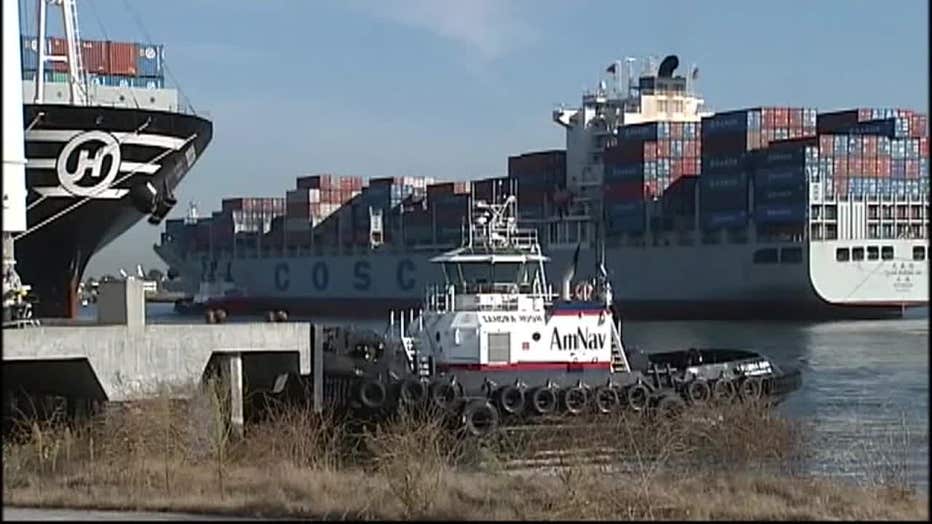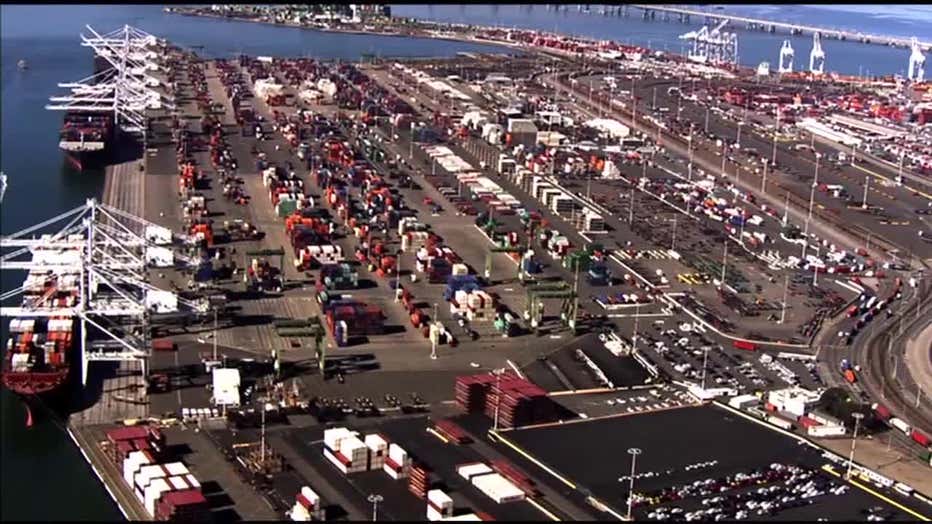Here's what the port strike means for Oakland and San Francisco
Here's what the port strike means for Oakland and San Francisco
About 45,000 members of the International Longshoremen's Association on the Gulf and East Coast walked off the job on Monday, and so far, the strike is so far not affecting workers at the ports in Oakland or San Francisco.
OAKLAND, Calif. - About 45,000 members of the International Longshoremen's Association on the Gulf and East Coast walked off the job on Monday, and so far, the strike is so far not affecting workers at the ports in Oakland or San Francisco.
West Coast dockworkers belong to a different union.
However, experts worry about the trickle-down effects if the strike lasts long enough.
Even a week-long strike might affect other ports across the country, and make deliveries during the holiday retail season a disaster.
"The timing couldn't be any worse," Port of Los Angeles CEO Gene Seroka said on Monday. "It's that small-to medium-size business that I'm concerned with. Typically, they run these last 12 weeks before the holidays to make payroll and keep their companies viable. That's at risk right now."
For the strike to end, the ILA needs to make a deal with the United States Maritime Alliance, which represents the ports.
Much of the labor dispute involves the addition of new technologies to U.S. ports that the union says could ultimately cause job losses.
The union is demanding a total ban on the automation of cranes, gates and moving containers in the loading and unloading of freight, along with significantly higher wages.
The strike affecting 36 ports is the first by the union since 1977.
The Conference Board, a non-profit that looks into business insights, predicts the strike could cost $540 million a day.
All eyes are on what, if any, action the Biden administration might take — particularly just weeks ahead of a tight presidential election.
The president has the power to order an 80-day cooling-off period, suspending the strike, under the 1947 Taft-Hartley Act. But Biden has indicated he’s not interested in intervening.

FILE ART- Port of Oakland.

FILE ART- Port of Oakland.
The Associated Press and Fox Business contributed to this report.

